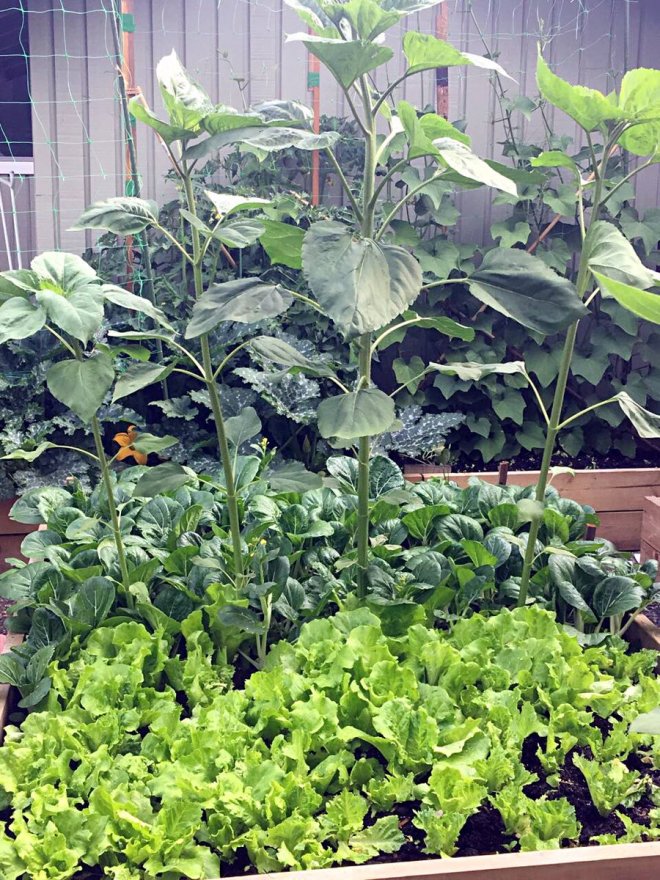
Photo Credit: by @CANPharmacyKing
Some people start gardening as a hobby, but what they may not know is gardening is actually good for your mental health. And it’s not just being outdoors that is beneficial, it’s actually the act of gardening itself that improves mental health.
Gardening Outdoors Leads to Mental Health Benefits
Access to the natural environment and outdoor spaces is “vitally important” for good mental health says the World Health Organization. And any “green exercise” (an activity in the presence of nature) leads to positive short- and long-term health outcomes. Positive effects are seen on self-esteem and mood. According to the study What is the Best Dose of Nature and Green Exercise for Improving Mental Health? A Multi-Study Analysis, the presence of water actually increases these positive effects. Other outcomes from this study include:
• Greater duration and intensity improves outcomes, but even short green exercises show benefits.
• The greatest change in self-esteem was seen in the young.
• The greatest change in mood was seen in the middle-aged.
• Those with mental illness had the greatest improvements in self-esteem.
And while most people think of outdoor activities like running, walking and cycling as being outdoor activities that benefit mental health, gardening should actually be a part of that list. While gardening may not be an aerobic activity, it still is exercise, and exercise is known to improve mental health. Gardening is also known to be correlated with satisfaction in general.
According to the World Health Organization:
“Effective interventions to improve people’s connections with nature and increase outdoor activities have been implemented across a number of high-income countries, including Japan, the US and UK. Numerous mental health benefits have been documented, including: improved concentration among children with [attention-deficit/hyperactivity disorder] ADHD after taking walks in parks; and improved employee performance and mood after the insertion of plants into offices”
Evidence of Gardening Improving Mental Health
In 2003, the literature on gardening and mental health was inconclusive but since then, more evidence on the benefits of gardening on mental health has been found. In 2013, a review of evidence published in the Mental Health Review Journal found 10 relevant papers published since 2003. All reported positive results when those with mental health concerns started gardening. Specific benefits were noted in the reduction of symptoms of depression and anxiety. Benefits were found across the domains of:
• Emotion
• Social
• Vocation
• Physical
• Spiritual
While the evidence was of higher quality than in 2003, no randomized-controlled trials have been conducted.
Occupational therapists also recognize the mental health benefits of gardens and gardening. For example, the Center for Addiction and Mental Heath has created a “sensory garden” to provide a calming sensory experience.
Phyllis Wong, an occupational therapist praises the garden noting a client who agreed to water the garden experienced great mental health benefits. The client was very anxious and talked of constant pain. However, when she was in the garden watering the plants she, “felt at ease the entire time.”
Why Gardening Helps Your Mental Health
It’s not known why gardening improves peoples’ mental health. It might be the case that for a person with depression any reason that creates the desire to get outdoors and into the sunlight is a good reason. It might be the motivation of tending to plants that gets him or her out of bed in the morning. It might feel very hard to get up, but knowing your plants need watering, may be the motivation you need to do something positive.
For a person with anxiety, doing a task that is non-anxiety-provoking, simple and peaceful may be enough to quiet the thoughts of anxiety for a time. It allows them to focus on the task at hand and practice mindfulness, which is known to calm anxiety.
In all cases, seeing life you helped create and nurture is rewarding in and of itself and knowing that you can be successful in growing this life is good for a sense of achievement and self-esteem, which is often low in those with mental illness.
Of course, gardening can’t cure a mental illness, but gardening can help reduce some of its symptoms for many people. And with no side effects except a possible sunburn, gardening is a therapy worth trying. So get outdoors in the beautiful weather, get dirty and see what benefits you might experience.
References
Center for Addiction and Mental Health, "Introducing CAMH’s Sensory Garden”
Jane Clatworthy, Joe Hinds, Paul M. Camic, (2013) "Gardening as a mental health intervention: a review", Mental Health Review Journal, Vol. 18 Issue: 4, pp.214-225.
Jo Barton and Jules Pretty, (2010) “What is the Best Dose of Nature and Green Exercise for Improving Mental Health? A Multi-Study Analysis”, Environmental Science and Technology, 44 (10), pp 3947–3955.
World Health Organization, (2014) “Social Determinants of Mental Health”
###
Natasha Tracey is a professional writer and author for Bipolar Burble. She currently worked as a freelancer for Kingsblog.